Donate now!
Donate to support our nonprofit mission in International Broadcasting
How to broadcast to conflict zones and in case of emergency: The war in Ukraine
Broadcasting on shortwave radio offers several advantages over other forms of communication, particularly in times of war or other disruptions. In Ukraine, where the war is has disrupted local AM and FM radio, Shortwave radio can provide an essential source of information and connection for people in the affected areas.
Media and local AM & FM radio disruption in Ukraine
One of the critical advantages of Shortwave radio is its ability to reach a wide area. Unlike local local or national use of AM and FM radio transmitters, which are limited in range, can be easily put out of service or disrupted by interference from the war, listeners can listen to International AM/Medium Waves and Shortwave radio broadcasts in several languages across vast distances. This means that people in remote or isolated areas can access important information and news, even when other forms of communication are unavailable.
Advantages of broadcasting on Shortwave to conflict zones
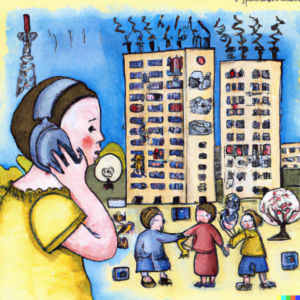 Another advantage of Shortwave radio broadcasting is its resilience to interference. Unlike other forms of radio, shortwave signals can travel long distances through the atmosphere, making them less susceptible to interference from physical obstacles or other sources. This makes shortwave radio an ideal choice for providing reliable communication in times of crisis or emergency.
Another advantage of Shortwave radio broadcasting is its resilience to interference. Unlike other forms of radio, shortwave signals can travel long distances through the atmosphere, making them less susceptible to interference from physical obstacles or other sources. This makes shortwave radio an ideal choice for providing reliable communication in times of crisis or emergency.
Advantages of broadcasting on Shortwave In case of emergency
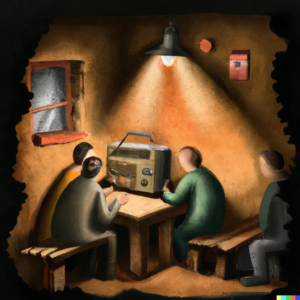 NEXUS-IBA’s International Broadcasting services can be activated even on short notice to broadcast in case of international emergencies using frequencies allocated for International Radio for Disaster Relief (IRDR). This is an initiative supported by the International Telecommunication Union (ITU), the HFCC, the Arab States Broadcasting Union (ASBU) and the Asia-Pacific Broadcasting Union (ABU) intended to broadcast special radio programs in any language and to any world target affected by an international emergency on particular shortwave frequencies that have been kept available internationally for such use.
NEXUS-IBA’s International Broadcasting services can be activated even on short notice to broadcast in case of international emergencies using frequencies allocated for International Radio for Disaster Relief (IRDR). This is an initiative supported by the International Telecommunication Union (ITU), the HFCC, the Arab States Broadcasting Union (ASBU) and the Asia-Pacific Broadcasting Union (ABU) intended to broadcast special radio programs in any language and to any world target affected by an international emergency on particular shortwave frequencies that have been kept available internationally for such use.
Professional radio stations, amateur radio enthusiasts and the military have used Shortwave radio to communicate in emergencies such as natural disasters, war, epidemics or other events that disrupt normal communication channels. Since shortwave radio signals can travel thousands of miles beyond national borders, they are a valuable asset during international emergencies.
In addition to its broad reach and interference resilience, shortwave radio offers the advantage of being relatively easy and inexpensive to receive. Unlike local AM and FM radio, which require specialized equipment and infrastructure on the target, shortwave radio can be broadcast from abroad and usually very far away using powerful transmitters and directional antennas. This allows individuals and organizations to outsource broadcasting on Shortwave, escape strict media control or censorship from local authorities, and provide valuable information and connections for people in the target areas.
Shortwave and Medium Wave (AM) Advantages for International Broadcasting
Broadcasting on Shortwave radio offers several advantages over other forms of communication. NEXUS-IBA also issues AM radio (Medium Waves) to cover large areas spanning the European continent during the evening and night.
International broadcasting on Shortwave and on International AM/Medium Waves has been particularly effective in recent conflicts in Iran, Iraq, the ex-republic of Yugoslavia, Ukraine, Israel and Palestine, particularly during war or other disruptions. With its broad reach, resilience to interference, and ease of setup, Shortwave radio can provide an essential source of information and connection for people in the affected areas.

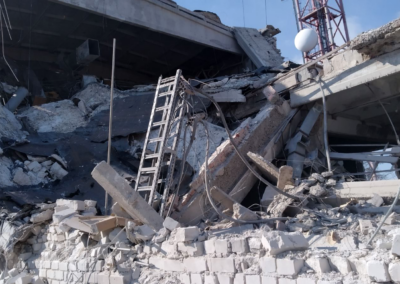
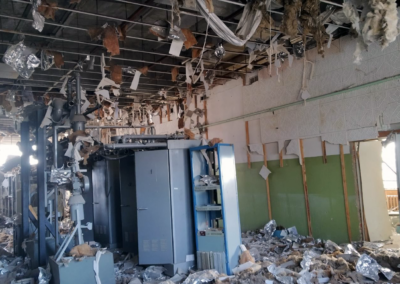

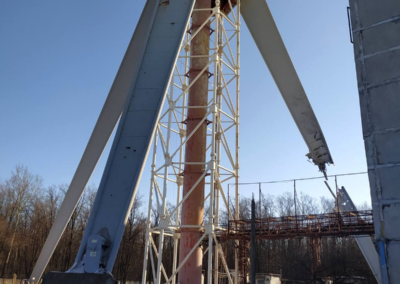
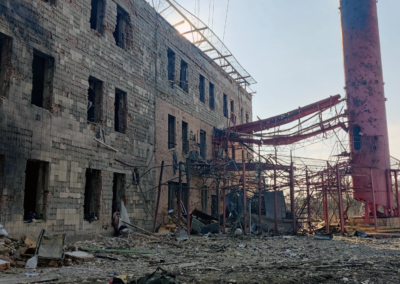
0 Comments